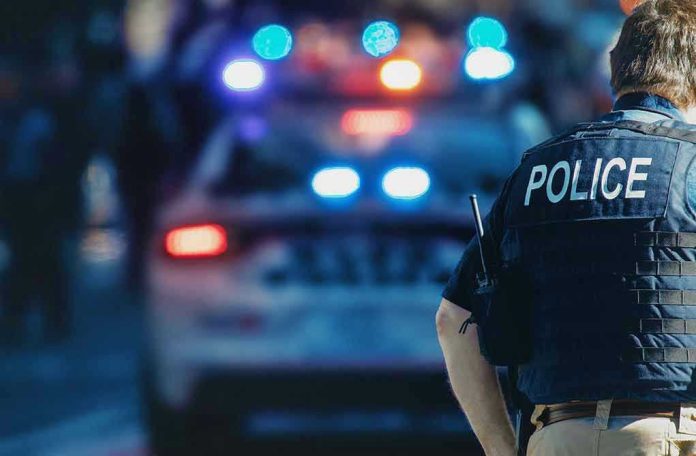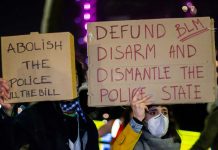
Rapper Soulja Boy is once again facing serious legal jeopardy after being arrested in Los Angeles for allegedly possessing a firearm as a convicted felon, raising renewed questions about celebrity privilege, accountability, and the consequences of repeat offenses.
Story Snapshot
- Soulja Boy, already a convicted felon, was arrested August 3, 2025, in Los Angeles on suspicion of possessing a firearm.
- The arrest took place during a routine traffic stop in the Fairfax District, not a targeted investigation.
- This incident follows a series of prior legal troubles and recent civil judgments against the rapper for violent conduct.
- California law strictly prohibits felons from owning guns, and the case spotlights ongoing debates about celebrity justice and public safety.
Soulja Boy’s Arrest: Timeline and Legal Context
On August 3, 2025, at approximately 2:30 a.m., Los Angeles police officers conducted a traffic stop in the city’s Fairfax District. During this stop, DeAndre Cortez Way—better known as Soulja Boy—was taken into custody after officers discovered he was a convicted felon allegedly in possession of a firearm. The rapper was subsequently booked into the LAPD Wilshire Division jail later that morning. No official statements have been made by Soulja Boy or his representatives since the arrest, and the full details of the incident remain closely held by law enforcement authorities. Multiple news outlets confirmed the sequence of events, with only minor discrepancies in the exact booking time and involvement of others in the vehicle.
Soulja Boy’s status as a high-profile artist with a lengthy history of legal issues has drawn significant public attention to the case. The arrest was not the result of an ongoing investigation but occurred during a standard police patrol—underscoring that, despite celebrity, the law holds no exemptions for repeat offenders. California’s gun laws are among the strictest in the nation, and possessing a firearm as a convicted felon is a serious offense with potentially severe penalties.
Pattern of Legal Troubles and Civil Judgments
This latest arrest is not Soulja Boy’s first encounter with the law over firearms. In December 2016, he was arrested at his Hollywood Hills residence for gun possession while on probation. His legal troubles have escalated in recent years: in April 2023, a civil court ordered him to pay $471,800 in damages for assault and battery involving a firearm at his Malibu home. That same month, he was found liable for sexual assault and abuse of a former assistant, resulting in more than $4 million in damages. These repeated legal setbacks threaten not only his personal freedom but also his celebrity brand and career prospects.
The Fairfax District, where the arrest occurred, is frequently patrolled by the LAPD and is known for its strict enforcement of probation and firearms violations. Given Soulja Boy’s prior record, legal experts note that the Los Angeles County legal system may be particularly strict in prosecuting this latest alleged offense. It is widely acknowledged among criminal justice professionals that recidivism, especially among high-profile individuals, often results in harsher penalties, both as a deterrent and a statement of public policy.
Implications for Celebrity Accountability and Public Debate
The immediate consequence of this arrest is Soulja Boy’s continued detention and the possibility of facing new felony charges. If convicted, he could face significant jail time, further damaging his public image and financial stability. The music industry also faces renewed scrutiny, as promoters and labels may become increasingly wary of artists with histories of legal and violent behavior. For Soulja Boy’s fans and the hip-hop community, the arrest has become a flashpoint in ongoing debates about whether celebrities are unfairly targeted or, conversely, unfairly protected by their fame.
Beyond the immediate legal ramifications, this case highlights broader concerns about gun violence, the enforcement of existing firearm laws, and the role of the justice system in holding public figures accountable. Legal experts and criminologists have weighed in, emphasizing that high-profile cases can shape public perception of both justice and deterrence. For many Americans who value law and order, these repeated incidents reinforce the view that the legal system must apply the law equally, regardless of status or celebrity. As the investigation continues, attention will remain fixed on how the courts handle this case and whether it sets any new precedents for the treatment of celebrity offenders under strict state and federal gun laws.









